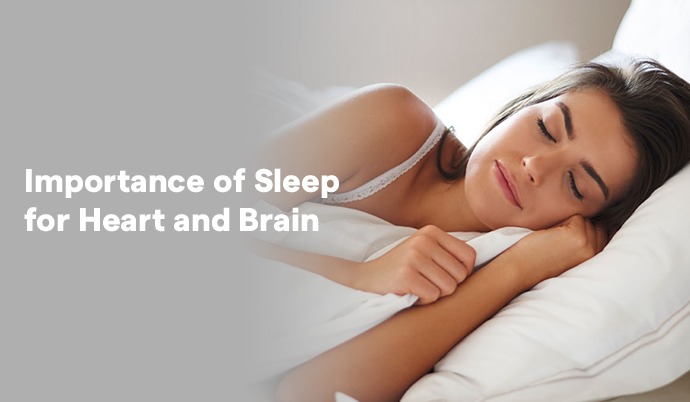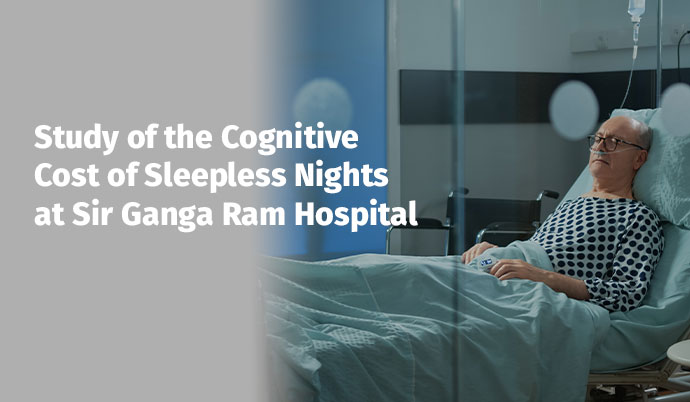
Consider your brain and heart as two special customers in a luxury resort. Sleep is the banquet meal, the spa care, and the bodyguard, without which all turns upside down. So, let us understand how sleep is more than getting a good dose of rest, because sleeping is a revolutionary measure to improve the quality of life.
What Occurs During Sleep?
Sleeping does not mean doing nothing. Under those shut-down lids, your body is performing a complete series:
More or less, no sleep means no maintenance of the system.
The Destructive Effect of Poor Sleep on the Heart
Your heart not only beats, it hears. And specialists from the best medicine hospital in Delhi do not like the idea of messing around with bedtime.
a) Rise in Blood Pressure
One night of poor sleep will increase your systolic blood pressure, putting you in the hypertension world.
b) Heart Disease Risk
The American Heart Association records say that the risk of heart disease is 2X more present in individuals who sleep less than six hours a day, which was found to be higher than in individuals who sleep a solid seven to eight hours.
c) Irregular Pulse
A huge villain is sleep apnea, or the condition in which a person repeatedly stops and restarts breathing during sleep. It is associated with atrial fibrillation that predisposes one to heart failure and other strokes.
d) Hay fever
The deprivation of sleep increases C-reactive protein (CRP), which is an indicator of inflammation. Heart attack is greeted by the red carpet, which is chronic inflammation.
The Cost of Neurologist Sleep Deprivation
At some point, you must have woken up foggy, irritable, or simply forgetful after a bad night's sleep.
a) Memory Disorder
The brain stores memories during REM sleep. Spending time on this step and forgetting all these passwords, names, and even birthday dates.
b) Stroke increases risk
Research indicates that less than 6 hours of sleep at night makes you four times more likely to have a stroke and go into apoplexy despite being in good health.
c) Alzheimer’s threat
Chronic sleep loss is directly linked to the buildup of the beta-amyloid plaques associated with Alzheimer's.
d) Mood Disorders
With no sleep = mood swings, anxiety, depression, and irritability. The lack of sleep disrupts the balance of dopamine and serotonin, which is the same thing that keeps you sane.
Typical Sleep Problems in India
The truth is, we can sleep anywhere and pretty much any time, or even during a wedding sangeet. But quality? It is a different story.
However, the twist is that the majority of them do not suspect that they have a sleeping disorder. They simply refer to it as having bad sleep, and they go on with it. Do not act like that person.
Easy Sleeping Routines Which Save Your Heart & Brain
Nothing is rocket science; it is just common sense with a dash of discipline.
Symptoms That You Are Missing Out on Sleep
And when 3 or more of these symptoms resonate with you, you are in serious need of some repair of your sleep issues.
And amidst this chaos, we should not forget about our teenagers; they are the tiny sleepy-eyed warriors who are deliberately fighting deadlines, social drama, and dopamine hits from midnight scrolling. With school, coaching classes, and a screen glued to their faces, sleep has taken a backseat. The result? Foggy mornings, poor focus, mood swings, anxiety, and a serious drop in memory and academic performance. Sleep deprivation also impacts their physical health, increasing the risk of obesity, high blood pressure, and even depression. It’s more than just being tired; it’s a silent burnout in the making. Helping teens build healthy sleep habits isn’t optional; it’s the greatest form of protection we can offer.
Sleep is not just about idling around; sleep is healing time, growth time, and protective time. It cleanses your mind, it energises your heart and tames your emotions. In the country where the streets do not sleep and Wi-Fi does not rest, recovering your right to 7-9 hours of deep sleep, uninterrupted by either the alarm clock, your snoring neighbour, or your sleeping spouse, is radical. If you are experiencing any above-mentioned symptoms even after careful precautions, feel free to consult a specialist and book an appointment at Sir Ganga Ram Hospital today.




